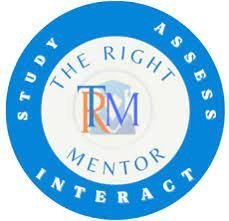Welcome to The Right Mentor, your trusted source for exam preparation. In this article, we provide valuable notes on the Indian political system to help you excel in your Telangana TGT jobs exam. Gain a deep understanding of the structure, functions, and key features of the Indian political system, ensuring success in your exam. Read on to discover our comprehensive notes and ace your exam with confidence.
Federal System
India follows a federal system of government where power is divided between the central government and the state governments. This division of power ensures a balance between the central authority and regional autonomy.
Parliamentary Democracy
India has a parliamentary form of government where the President is the head of state and the Prime Minister is the head of government. The Parliament consists of the President, the Rajya Sabha (Council of States), and the Lok Sabha (House of the People).
Written Constitution
India has a written constitution that lays down the fundamental rights, principles, and structure of the government. The Constitution of India is one of the lengthiest and most comprehensive constitutions in the world.
Fundamental Rights
The Indian Constitution guarantees fundamental rights to its citizens, such as the right to equality, freedom of speech and expression, and the right to protection of life and personal liberty. These rights are enforceable by the judiciary.
Independent Judiciary
The Indian political system has an independent judiciary that acts as the guardian of the Constitution and ensures the rule of law. The Supreme Court is the highest judicial authority in the country.
Universal Adult Suffrage
India follows the principle of universal adult suffrage, where every citizen above the age of 18 has the right to vote. Elections are held periodically at the national, state, and local levels to elect representatives to the Parliament and state legislatures.
Secularism
India is a secular country, which means that the state does not promote or favor any particular religion. It guarantees freedom of religion and ensures equal treatment of all religions.
Multi-Party System
India has a multi-party system where multiple political parties compete in elections. The diversity of political parties allows for a wide range of representation and promotes democratic participation.
Independent Election Commission
The Election Commission of India is an autonomous body responsible for conducting free and fair elections in the country. It ensures the integrity of the electoral process and regulates political parties.
Reserved Seats
The Indian political system includes reserved seats for scheduled castes and scheduled tribes in the Parliament and state legislatures to ensure representation and participation of marginalized communities.
Understanding the key features of the Indian political system is essential for a comprehensive understanding of the country’s governance structure and democratic processes. These features reflect the principles of federalism, democracy, rule of law, and inclusivity that form the foundation of the Indian political system.
Prepare effectively for your Telangana TGT jobs exam with our comprehensive notes on the Indian political system. Gain a solid understanding of the structure, functions, and key features of the Indian political system to excel in your exam. Visit The Right Mentor for more valuable exam preparation resources and stay ahead in your journey towards success.



